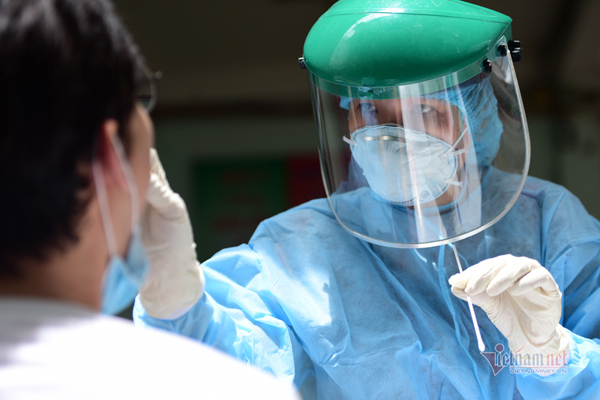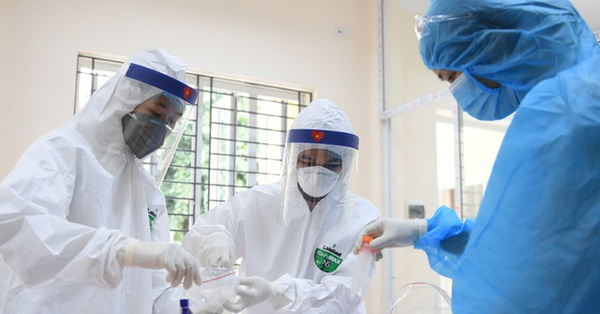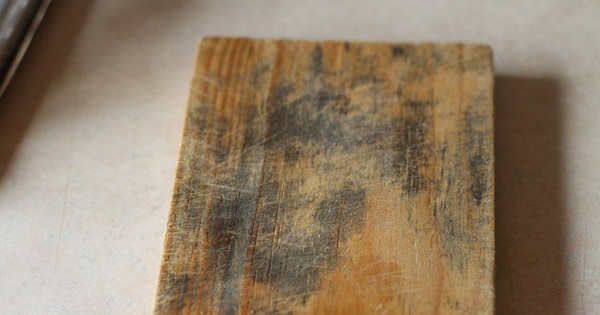Who is susceptible to being re-infected with Covid-19?
Many people are thinking that having Omicron mutation, the possibility of reinfection will be low, leading to subjective psychology. However, there have been cases of patients being re-infected for the 2nd or 3rd time. So who is at risk of re-infection?
The case of Ms. NTA (in Ba Dinh, Hanoi) is an example. About a month ago, she had symptoms of cough, a quick test was positive. Follow-up until the 7th day, she tested again and got negative results.
Recently, this woman has symptoms of sore throat, stuffy nose. I think I’m not infected Covid-19 just recovered from illness. But when testing quickly, the result is positive. According to Ms. TA, from the first positive to the second positive time is exactly 1 month apart.
Doctor Truong Huu Khanh, Vice Chairman of Ho Chi Minh City Infectious Diseases Association, said that the current re-infection due to the Omicron variant was widespread in the community.
 |
| Photo: VietNamNet |
According to Dr. Khanh, in principle, to identify a reinfection case, gene sequencing must be performed to identify two different variants in the two infections. However, this serves to monitor the epidemic by experts, people do not need to do it because it costs both money and time.
Experts said that, after recovering, the patient’s body will produce antibodies against the SARS-CoV-2 virus. However, the amount of antibodies produced may not be strong enough or do not last long enough, after a period of time will weaken and disappear. Or the antibodies created when infected with the original strain are not suitable to protect the body against the new strain, so the patient is re-infected with the new virus strain.
Similarly, BSCKII Nguyen Thu Huong – Head of the Covid-19 Prevention and Control Unit, Thanh Nhan Hospital said that many people are subjective when they think that having the Omicron variant will be difficult to re-infected. .
Head of the Covid-19 Prevention and Control Unit, Thanh Nhan Hospital, added that there were 2 cases of reinfection, maybe the patient was previously infected with the Delta strain and then was vaccinated and subjective. But this person continued to be infected with a new strain – Omicron.
In the second case, people were infected with Omicron strain but still re-infected with Omicron but with another branch. Omicron consists of 3 branches BA.1, BA.2, BA.3, the original strain BA.1 has spread worldwide since November 2021. Up to now, strain BA.2 has gradually replaced, becoming the dominant variant in many countries. People who have been infected with the original strain of Omicron, BA.1, can then be infected with the BA.2 strain.
According to the doctor, all subjects, from young to old, if they have contact with the source of infection, can be re-infected. But subjects at high risk of re-infection are immunocompromised elderly, people with underlying medical conditions, and unvaccinated children. Particularly, reinfection can meet young people so people can’t be subjective.
More re-infection, close distance makes patients tired, longer post-Covid time makes health worse.
Dr. Bui Le Minh, Head of Biotechnology – NTT High Technology Institute (Nguyen Tat Thanh University) also said that people with weak immune systems, weakened immune status or antibodies created after the first visit. The first Covid-19 infection is not enough to protect yourself from being at high risk of re-infection with Covid-19.
Also according to Dr. Minh, the second Covid-19 infection is usually not dangerous. However, for those who have recovered from the virus but have not fully recovered or are suffering from Covid, they need to be careful. Because the combination of symptoms of 2 times will make the disease worse. “To avoid re-infection, people still adhere to the principles of wearing masks, washing hands and disinfecting…”, Dr. Le Minh said.
Sharing the same opinion, Dr. Nguyen Thu Huong said that people who have been vaccinated or infected must still perform 5K well after being cured, self-monitor their health to make sure they are not infected and not an intermediary. infect others. When the body shows symptoms of cough, fever, fatigue, etc., it is necessary to perform a quick test to check for the possibility of reinfection.
Ngoc Trang
at Blogtuan.info – Source: vietnamnet.vn – Read the original article here



